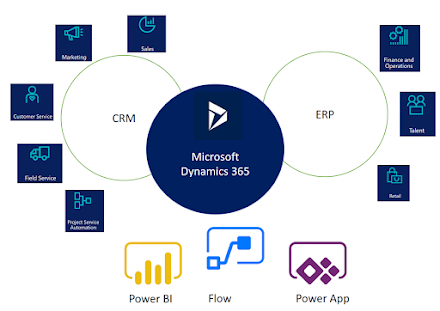What is private cloud and how its beneficial for organizations ?
A private cloud is a type of cloud computing model where a company or organization creates a dedicated computing environment within their own data center, using virtualization technology to create and manage multiple virtual servers on a single physical server. This enables organizations to deliver IT services to their internal users and customers with the benefits of cloud computing, such as self-service, scalability, and automation, while maintaining control over their own infrastructure and data.
Private clouds are usually used by large organizations that
need a high degree of control over their IT resources, such as government
agencies, financial institutions, healthcare providers, and other industries
that require strict security and compliance requirements. Private clouds can be
managed and operated by the organization’s own IT staff or by a third-party
managed service provider.
Types of private
clouds
1. On-premises
private cloud
An on-premises private cloud is hosted within an
organization's own data center, providing exclusive access to IT resources and
data. This type of private cloud is built and managed by the organization's own
IT team, giving them complete control over the infrastructure.
2. Hosted private
cloud
A hosted private cloud is built and managed by a third-party
provider, but the infrastructure is dedicated to a single organization. This
type of private cloud is hosted in a remote data center and provides exclusive
access to IT resources and data.
3. Virtual private cloud
A virtual private cloud (VPC) is a type of private cloud
that is hosted within a public cloud environment, such as Amazon Web Services
(AWS) or Microsoft Azure. The infrastructure is dedicated to a single
organization, providing exclusive access to IT resources and data, but it is
hosted within a shared public cloud environment.
4. Managed private cloud
A managed private cloud is a type of private cloud that is
built and managed by a third-party provider. The organization leases the
infrastructure and pays for managed services to ensure that the infrastructure
is optimized and running smoothly.
5. Hybrid cloud
A hybrid cloud is a combination of private and public cloud environments. Organizations can deploy some workloads and applications in a private cloud, while others are hosted in a public cloud. This allows organizations to take advantage of the benefits of both private and public clouds, while maintaining control over sensitive data and applications.
How does Private
Cloud Work?
Private clouds work by leveraging virtualization technology
to provide exclusive access to IT resources and data for a single organization.
Here are the basic steps of how private clouds work:
1. Hardware
virtualization
The first step in creating a private cloud is to implement
hardware virtualization. This involves using specialized software to create
virtual machines (VMs) on a physical server. Each VM acts as a self-contained
operating system, allowing multiple virtual servers to run on a single physical
server.
2. Resource
allocation
Once the virtualization layer is in place, the next step is
to allocate resources to each VM. This includes assigning specific amounts of
CPU, RAM, storage, and network bandwidth to each VM.
3. Network
virtualization
Private clouds also leverage network virtualization to
create virtualized network infrastructure. This involves creating virtual
switches and routers to connect VMs and enable communication between them.
4. Software-defined
storage
Private clouds use software-defined storage to provide
shared storage resources to VMs. This involves pooling physical storage
resources and presenting them to VMs as virtual disks.
5. Management and
automation
Private clouds require robust management and automation
tools to ensure that resources are allocated efficiently and that the
infrastructure is running smoothly. This includes tools for provisioning and
deprovisioning VMs, monitoring performance, and managing security and
compliance.
6. Access control
Private clouds also require strong access controls to ensure that only authorized users and applications have access to IT resources and data. This includes implementing identity and access management (IAM) systems, firewalls, and other security measures.
The benefits of
private clouds for organizations:
1. Greater control
over resources and data
Private clouds provide organizations with greater control
over their IT resources and data. With a private cloud, the organization can
configure and manage the infrastructure to meet its specific requirements,
including security, compliance, and performance. This allows the organization
to tailor the cloud environment to its own needs and to maintain control over
its data, which is important for regulatory compliance and data privacy.
2. Improved security
Private clouds offer a higher degree of security compared to public clouds. Since the infrastructure is dedicated to the organization, there is no risk of data breaches or cyber attacks from other tenants. The organization can also implement its own security measures, such as firewalls, intrusion detection and prevention systems, and access controls, to protect its data and applications.
3. Better performance
Private clouds can provide better performance and
reliability compared to public clouds. Since the infrastructure is dedicated to
the organization, it can be optimized for the organization’s specific
workloads, resulting in faster response times and higher availability. This is
particularly important for mission-critical applications that require high
performance and uptime.
4. Greater
flexibility
Greater flexibility: Private clouds offer greater
flexibility compared to traditional IT infrastructure. With a private cloud,
the organization can rapidly provision and deprovision resources as needed,
enabling it to respond quickly to changing business needs. This can help
organizations to reduce costs and improve efficiency, since they can scale
resources up or down based on demand.
5. Lower costs
Private clouds can be more cost-effective than traditional
IT infrastructure, since they allow organizations to consolidate resources and
optimize utilization. By virtualizing servers, storage, and network
infrastructure, organizations can reduce hardware costs and improve resource
utilization, which can result in significant cost savings over time.
6. Compliance
Private clouds can help organizations to meet regulatory
compliance requirements. Since the infrastructure is dedicated to the
organization, it can be configured to meet specific compliance requirements,
such as HIPAA, PCI-DSS, or GDPR. This can help organizations to avoid costly
fines and legal action, and to maintain the trust of their customers and
stakeholders.
7. Increased
automation
Private clouds can help organizations to automate IT
processes and tasks, which can improve efficiency and reduce errors. By
automating tasks such as provisioning, deployment, and monitoring,
organizations can reduce the time and effort required to manage their IT
infrastructure, freeing up resources for other tasks.
8. Improved disaster
recovery
Private clouds can offer improved disaster recovery
capabilities compared to traditional IT infrastructure. By replicating data and
applications across multiple sites, organizations can ensure that they have a
backup in case of a disaster, such as a natural disaster, cyber attack, or
hardware failure. This can help organizations to minimize downtime and avoid
data loss, which can be costly and damaging to their reputation.
9. Customizable
resource allocation
Private clouds offer customizable resource allocation, allowing
organizations to allocate resources based on their specific needs. This allows
organizations to optimize resource utilization and reduce waste, which can
result in cost savings over time. For example, an organization can allocate
more resources to a particular application or workload during periods of high
demand, and then reduce the allocation during periods of low demand.
10. Greater
collaboration and sharing
Private clouds can facilitate greater collaboration and
sharing within organizations. By providing a central platform for data and
applications, private clouds can enable teams to work together more
effectively, regardless of their location. This can help organizations to
improve productivity and innovation, by enabling teams to collaborate on projects
and share knowledge and resources.
11. Improved
scalability
Private clouds can provide improved scalability compared to
traditional IT infrastructure. By leveraging virtualization and automation
technologies, organizations can rapidly scale resources up or down based on
demand, without having to invest in additional hardware. This can help
organizations to respond quickly to changing business needs, while also
reducing costs and improving efficiency.
12. Better monitoring
and reporting
Private clouds can offer better monitoring and reporting capabilities compared to traditional IT infrastructure. By leveraging automation and analytics tools, organizations can monitor their IT infrastructure in real-time, and generate reports and alerts to help them identify and resolve issues quickly. This can help organizations to improve uptime, reduce downtime, and optimize resource utilization.




Comments
Post a Comment